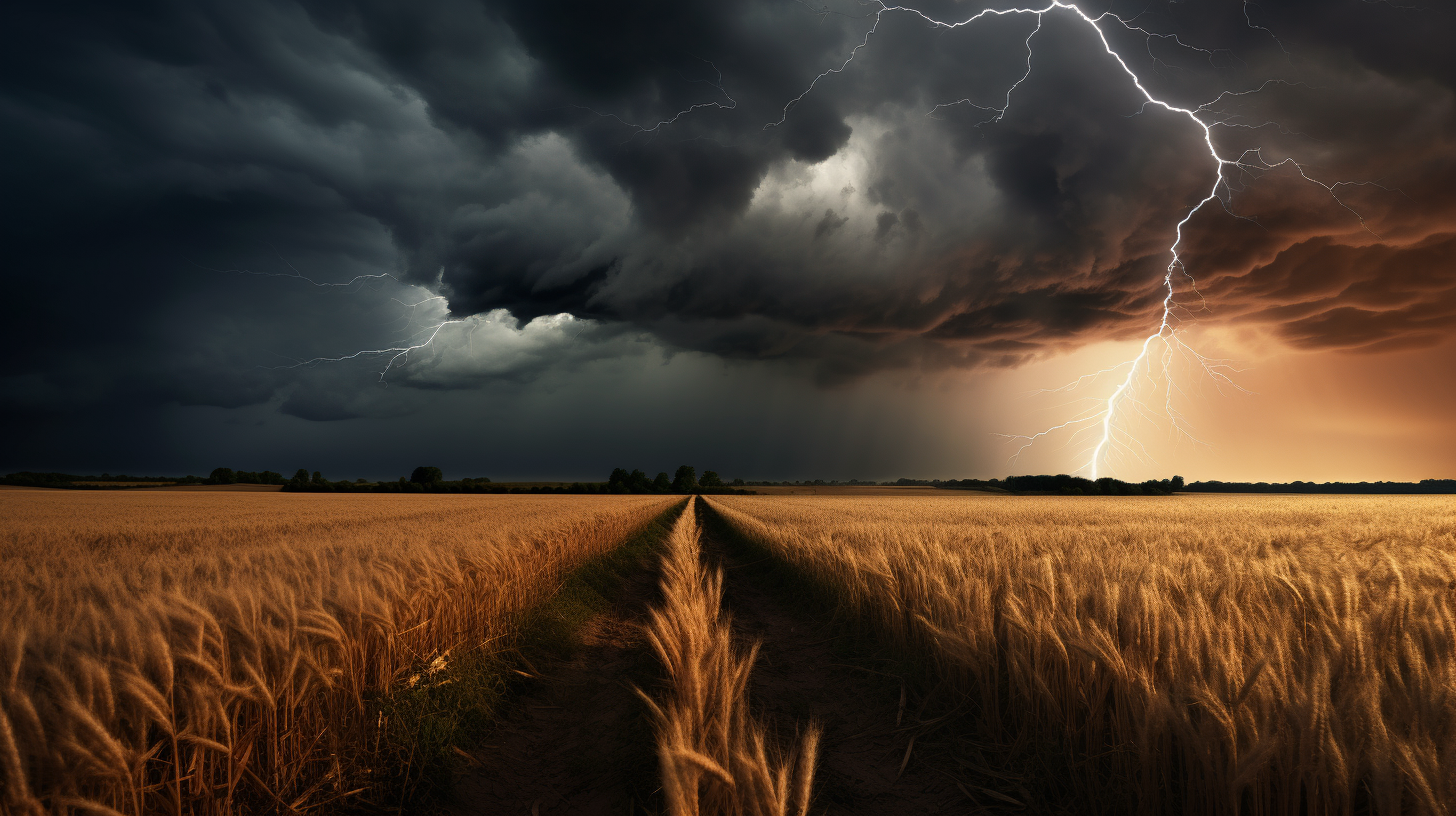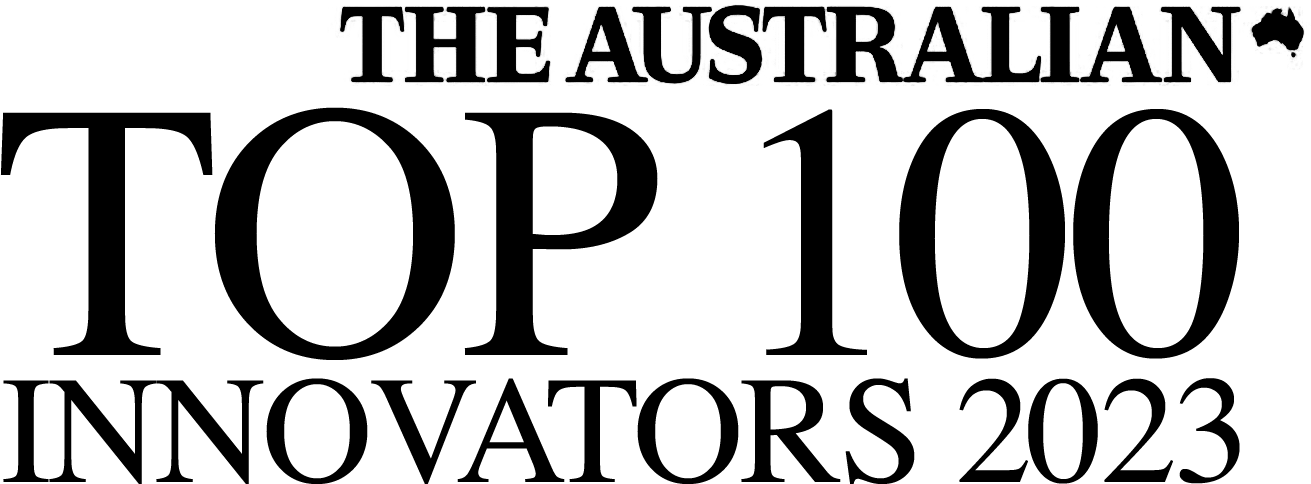Rainstick uses electricity to mimic the natural effects of lightning to grow crops bigger, faster and more sustainably.

Combining ancient wisdom with modern technology.
Inspired by the traditions of the Maiawali People of central west Queensland, Australia, we have built on a 10,000-year-old practice that acknowledges the influence of lightning on how plants grow.
Proudly a First Nations Startup working respectfully with Indigenous Cultural and Intellectual Property (ICIP)
Working to reduce extreme weather and climate change impact on food systems.
A 50ºC day could happen at any time¹. How will our food systems cope with a 20% loss in yield²?
Recent records indicate our food system's volatility is increasing. On the 4th of July 2023, a new average global air temperature record was set³. In Australia, we’re no strangers to extreme weather conditions from drought to floods. Extreme weather conditions are expected to increase globally, pushing the limits of our food systems, affecting all of us as consumers.

We directly address the need for climate friendly interventions that increase crop yields so that farmers can be part of the solution.
By treating seeds with electric fields (inspired by thunderstorms), we target enhanced yields in food crops without changing on-farm infrastructure.

We are working with producers and scientists to improve global food security.
Our Variable Electric Field Treatment (VEFt) seed treatment technology aims to increase crop yields and resilience to changes in climate conditions.
Electric seed treatments provide a chemical-free way for producers to increase yields while reducing their climate impact to feed an additional 2Bn people with clean food by 2050⁴.
Rising temperatures are reducing global food yields⁵.
Mounting pressures to reduce fertiliser and pesticide use⁶.
Rising input costs challenging profitable production⁷.
Goals for reduced water usage in agriculture⁸.
We welcome curious scientific inquiry and the reputable organisations that provide independent testing.
Curious scepticism and scientific rigour allows us to stay humble students of the natural world.
Independent science organisations are helping to deepen our understanding of the biological effects of Rainstick’s VEF Technology helping us to build an adaptable platform that can keep up with rapidly changing challenges and new opportunities.
Rainstick wasn’t created in a university, and currently owns all of the Intellectual Property pertaining to the apparatus, system of work and recipes.
In a June 2023, CSIRO (Australian Government scientific research agency) conducted an independent trial on Rainstick’s VEF technology and how it could influence microbial behaviours. The test concluded a significant potential in the technology to influence microbial populations.
“These findings [in the 3rd trial] underscore the significant potential of VEF treatments to influence microbial populations”
*Independent testing services provided by CSIRO. CSIRO holds no claim to the IP created during this experiment or Rainstick more broadly.

We work with companies big and small who help to feed the world.
Meeting regulatory challenges.
Increasing ESG pressures⁹ and Government regulations¹⁰, producers are working hard to meet steep chemical use reduction targets by 2030¹¹ in Australia¹², Singapore¹³, USA¹⁴ and Europe¹⁵. Rainstick is working with producers to bring new hope for meeting sustainability goals.
Sustainably elevating crop yields.
Global food production needs to double by 2050 to feed 10Bn people¹⁶. As producers look for alternative ways to increase their output without additional inputs, Rainstick boosts crop yields without altering farming practices.
Clean food for global security.
Recognising the role of food security in sustaining economic growth and national sovereignty¹⁷, Rainstick is working with nations looking to improve the viability of locally grown foods.
Resilience in a changing climate.
For each degree warmer, global staple crops like wheat are projected to reduce in yield by 10%¹⁸. Extreme weather conditions are affecting the growth of many crops. Rainstick is working with science organisations to better understand how to trigger resilience in key global food crops.
Along with our partners and supporters, we're building a legacy of sustainability and innovation for the next 100 years.
We’re focussed on providing value to our partners and we appreciate when our hard work is recognised.
We are privileged to share our progress at these key conferences.
Links and references
¹ Global warming of 1.5°C, ² Rising temperatures reduce global wheat production, ³ Earth Faces Hottest Day Ever Recorded—Three Days in a Row, ⁴ Finding new ways to feed the world, ⁵ Temperature increase reduces global yields of major crops in four independent estimates, ⁶ Farm to Fork targets - Progress, ⁷ Analysis – How global energy prices are affecting the price of Australian farm inputs, ⁸ Water: Key to Food Systems Sustainability, ⁹ ESG: Is your business ready for the future?, ¹⁰ Climate change and the policy implications for agriculture and fisheries, ¹¹ National statement on climate change and agriculture, ¹² Ambitious climate mitigation pathways for U.S. Agriculture and Forestry: Vision for 2030, ¹³ A sustainable food system for Singapore and beyond, ¹⁴ EU Pesticide Reduction (Sustainable Use Regulation SUR), ¹⁵ Finding new ways to feed the world, ¹⁶ Special report on climate change and land, ¹⁷ Temperature increase reduces global yields of major crops in four independent estimates, ¹⁸ Impact of Climate Change on Crops Adaptation and Strategies to Tackle Its Outcome: A Review.










